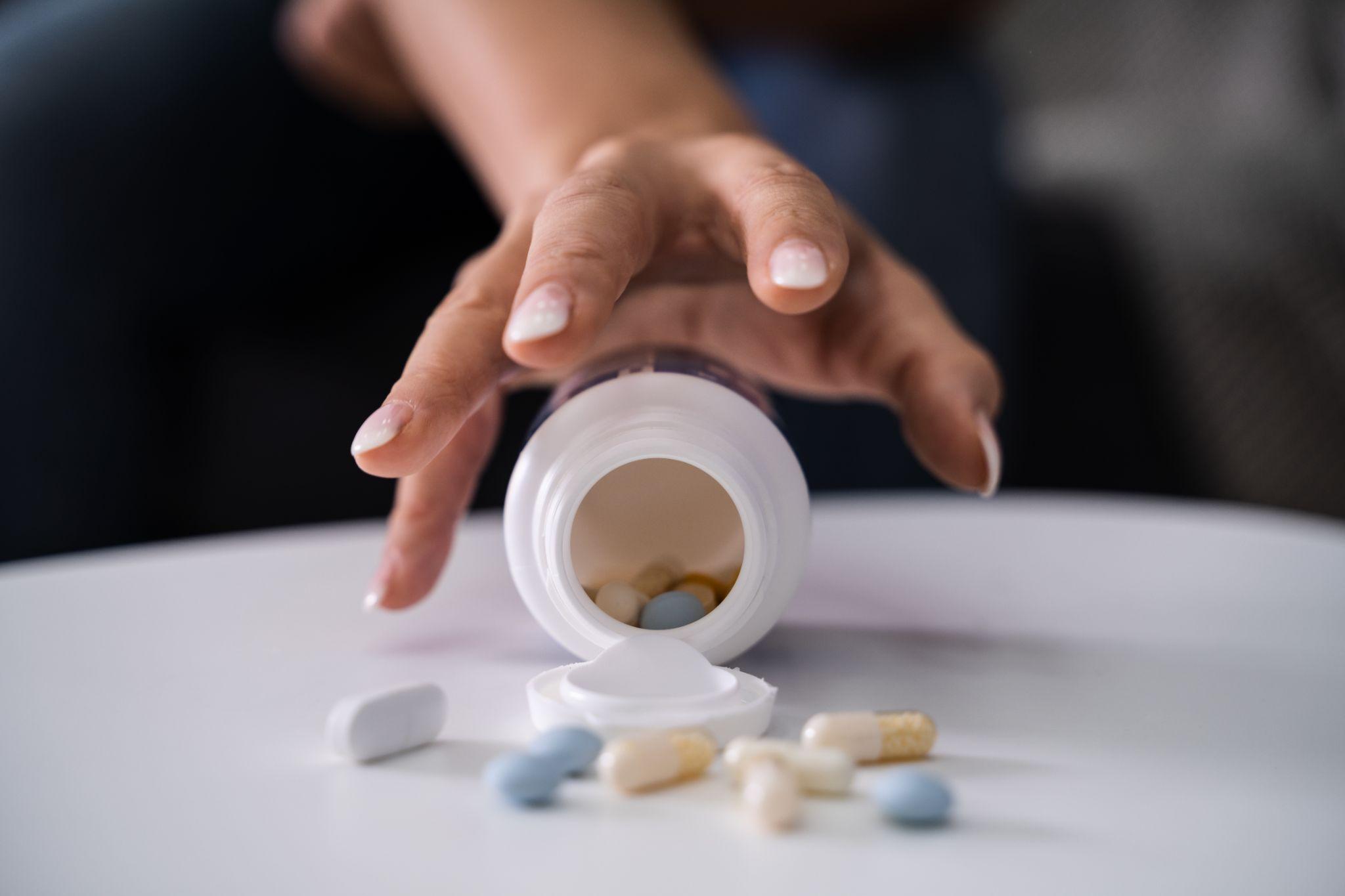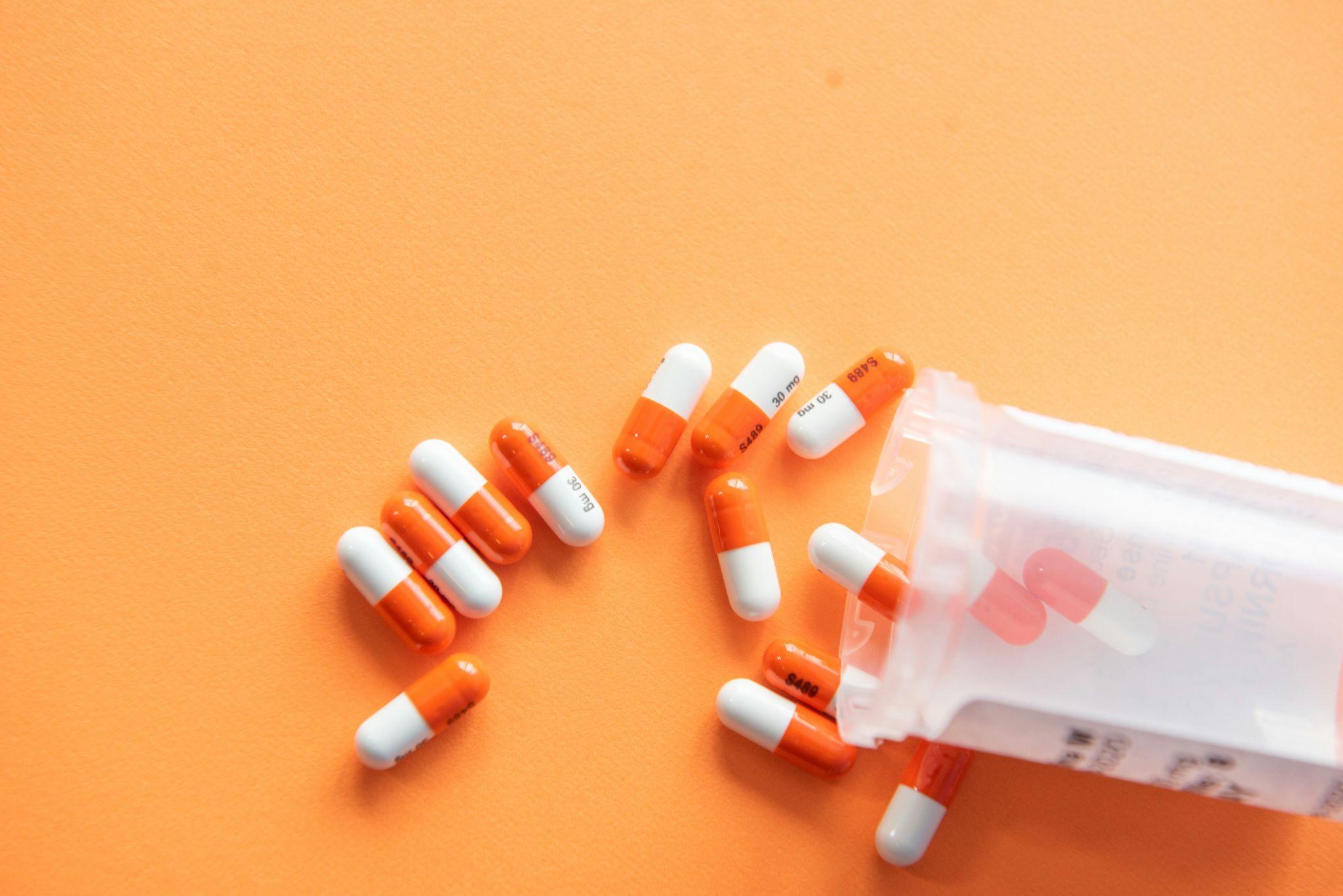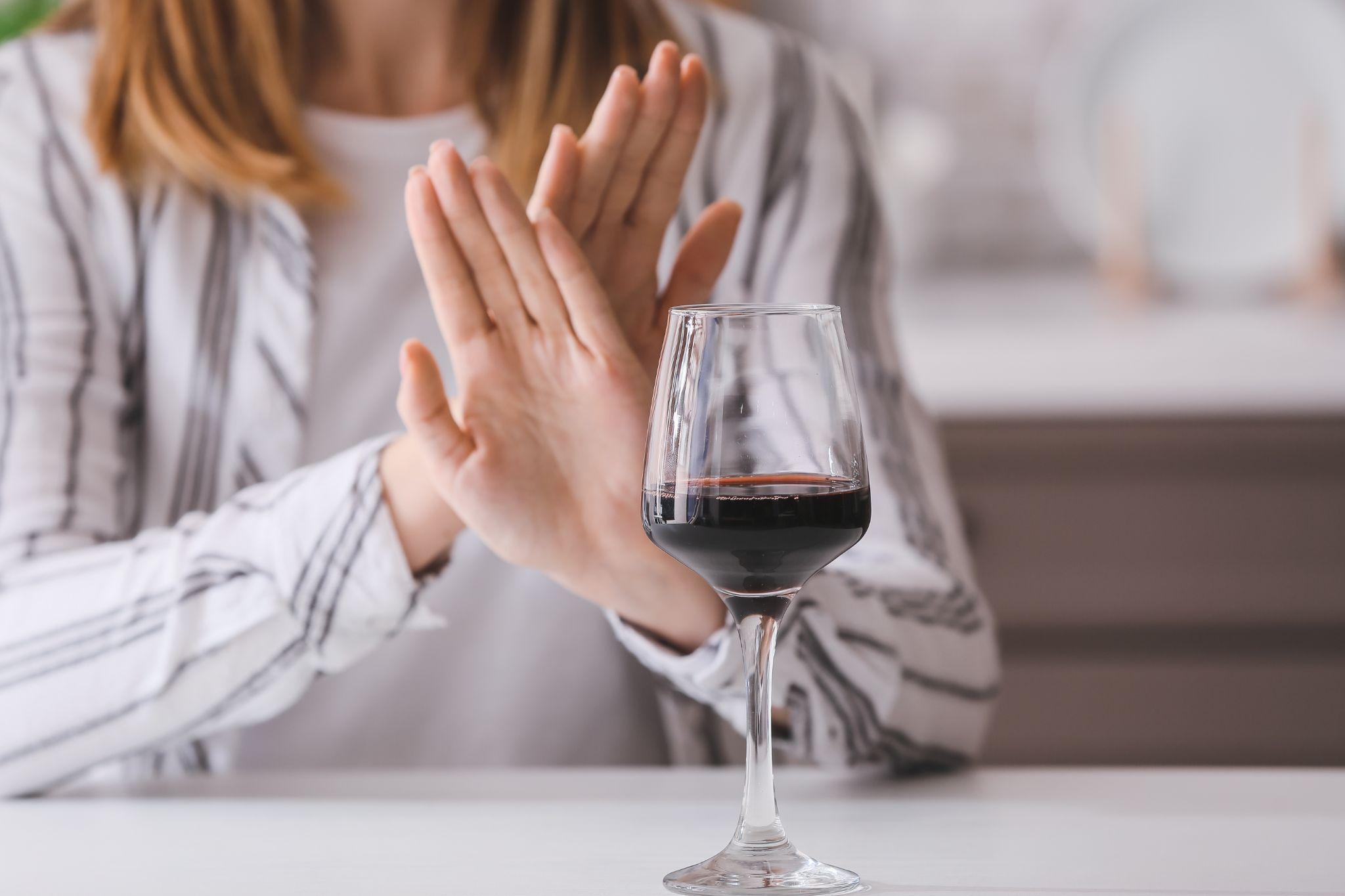
Our Addiction Resources
Navigating the world of addiction and recovery can be overwhelming. We’re here to provide clear, compassionate education and guidance. From practical advice for maintaining sobriety to informational guidance on the long-term effects of substance abuse, our content is a beacon of hope and understanding.
Our Team is Ready are ready to take your call
Call us Today!
or we can call you. Fill out form below
Our Blog

The Stigma With Men and Mental Health
In our society, mental health is often a subject shrouded in misconception and stigma, especially when it comes to men. The cultural and social expectations placed on men to be stoic, strong, and unemotional have contributed to a harmful narrative. This narrative suggests that mental health issues, particularly in men, are a sign of weakness.
At Lumina Recovery, we believe it’s crucial to address and dismantle unhealthy narratives. Below, we aim to shed light on the mental health stigma in men, understanding its roots, impacts, and how we can collectively work towards a more empathetic and supportive society.
Understanding the Stigma
Historical Perspective
The stigma surrounding men addressing their mental health disorders is deeply rooted in societal norms and history. Traditionally, societal roles from a young age have dictated that men must adhere to certain toxic masculinity traits—stoicism, toughness, and emotional restraint.
These traits, historically tied to notions of strength and survival, have inadvertently created a cultural ethos where expressing vulnerability or seeking mental health support is often seen as a deviation from expected masculine behavior.
The Impact of Stereotypes
Stereotypes surrounding mental illness are not only misleading but profoundly damaging, creating barriers that prevent many men from seeking the help they need.
The fear of being perceived as weak or less masculine for acknowledging mental health struggles can lead to a dangerous cycle of silence and suffering.
This silence often exacerbates mental health issues, leading to severe consequences such as signs of depression, anxiety, substance-use disorders, and even suicide.
Intersectionality
It’s important to recognize the intersectionality when discussing the mental health stigma with men. Factors like race, sexuality, and socioeconomic status can compound the stigma for some men, making it even more challenging to seek support.
Understanding these overlapping identities is crucial in addressing the unique challenges faced by different groups of men.
The Consequences of Stigma
Mental Health Outcomes
The stigma surrounding men’s mental health significantly influences their willingness to seek treatment and help, often leading to negative mental health outcomes.
Men are less likely to seek mental health treatment compared to their female counterparts, and are more likely to resort to harmful coping mechanisms such as substance abuse or aggressive behavior.1
This reluctance to seek help can exacerbate signs of mental health issues like depression, anxiety, and stress, leading to a vicious cycle of worsening mental health.
Societal Impacts
The repercussions of mental health stigma in men ripple through society. In the workplace, it can lead to decreased productivity, increased absenteeism, and a generally less healthy work environment.
In family dynamics, it can result in strained relationships and poor emotional support among family members.
Furthermore, societal costs can escalate due to increased healthcare usage, loss of productivity, and other social resources needed to address the aftermath of untreated mental health issues.
Risk of Isolation and Loneliness
Men facing mental health challenges, who feel ashamed and unable to seek help due to stigma, often experience isolation and loneliness.
This isolation can further exacerbate mental health issues, creating a feedback loop that is difficult to break. The feeling of being alone in their struggles can be one of the most damaging aspects of the stigma, as social support is often key in the recovery process.
Impact on Younger Generations
The stigma associated with men’s mental health also impacts younger generations.
Boys and young men who observe the stigma around them may internalize these beliefs, leading to a new generation facing similar struggles with mental health and stigma.
This perpetuation of the stigma can hinder progress in changing attitudes towards mental health in men.
Increased Suicide Rates
One of the most tragic consequences of the stigma surrounding men’s mental health is the increased rate of suicide among men.
Men are significantly more likely than women to die by suicide, which is partly attributed to the reluctance to talk about their mental health issues and seek help.1
The stigma contributes to feelings of hopelessness and isolation, which are risk factors for suicide.
Breaking the Cycle
Encouraging Open Conversations
Open and honest conversations about mental health are critical in breaking the stigma. Creating safe spaces where men feel comfortable sharing their experiences without fear of judgment is essential.
This involves changing the narrative to understand that mental health issues are not a weakness but a part of the human experience. Workplaces, educational institutions, and social groups should encourage discussions around mental health, emphasizing that it’s okay to not be okay.
Role of Education
Education plays a pivotal role in dismantling mental health stigma. By educating ourselves and others about mental health, we can dispel myths and misunderstandings.
This includes highlighting the importance of mental health, understanding the signs and symptoms of mental health issues, and promoting the effectiveness of treatment.
Educational campaigns should focus on reaching men in various settings, including schools, workplaces, and through media platforms.
Support Systems
Developing strong support systems is vital for men struggling with mental health issues. This can include family, friends, mental health professionals, and support groups.
These systems should offer a non-judgmental space for men to express their feelings and seek help. Encouraging men to build and maintain a network of support can significantly reduce the feelings of isolation and stigma.
Role Models and Public Figures
Public figures and role models who openly discuss their mental health struggles can have a powerful impact on breaking the stigma.
When men see influential figures, whom they respect and admire, talking openly about their mental health, it can challenge their own perceptions and encourage them to seek help. This visibility is crucial in normalizing mental health discussions among men.
Policy and Workplace Initiatives
Organizations and policymakers have a significant role to play in breaking the mental health stigma.
Implementing policies that promote mental health awareness, provide support services, and encourage work-life balance are essential.
Workplaces should create environments where mental health days are accepted and where resources for mental health support are readily available.
Promoting Healthy Coping Mechanisms
Encouraging healthy coping mechanisms is essential in breaking the cycle of stigma. This includes promoting activities like exercise, meditation, hobbies, and social interactions that can positively impact mental health.
Educating men on the importance of these activities and how they can be integrated into daily life can help in managing stress and mental health issues more effectively.
Tailored Mental Health Services
Providing mental health services that are tailored to men’s needs can also help in breaking the cycle of stigma.
This involves creating services that are accessible, approachable, and sensitive to the unique challenges men face. Mental health professionals should be trained to understand and effectively respond to the specific needs of men.
Break the Stigma With Men and Mental Health at Lumina Recovery

At Lumina Recovery, we believe in a world where mental health is treated with the same seriousness and lack of judgment as physical health.
Breaking the stigma around men’s mental health requires a collective effort. It’s about changing perceptions, encouraging open dialogue, and providing supportive environments for men to seek help.
Through our dual diagnosis treatment and therapy services, we can create a society where mental health is not a sign of weakness but a part of our shared human experience.
Contact us today to learn more about our addiction and mental health services from our team of professionals.
Sources:

Drug Abuse vs. Drug Misuse: What Is the Difference?
In a world where the use of prescription and non-prescription drugs is increasingly common, understanding the distinction between drug abuse and drug misuse is more important than ever.
This distinction is not just a matter of semantics—it is crucial for identifying the appropriate approach to treatment and support. Drug abuse and drug misuse, though often used interchangeably, are fundamentally different concepts.
At Lumina Recovery, we will explore these differences in a detailed, compassionate, and professional manner to enhance understanding and provide guidance.
Definition and Understanding
Drug Abuse
Drug abuse refers to the intentional use of an illicit or prescription drug used inappropriately for non-medical purposes, especially when such use is harmful or dangerous. This includes the use of illicit drugs or the misuse of prescription drugs in a way that is deliberately harmful.1
Drug abuse is characterized by intentional, often compulsive behavior that can lead to addiction or physical dependence.
Examples of drug abuse include the regular use of illegal drugs like cocaine or heroin, taking prescription drugs for recreational purposes, or continually using a drug despite experiencing negative consequences.
Drug abuse is a more severe condition than drug misuse and often requires more intensive treatment and intervention.
Drug Misuse
Drug misuse refers to the incorrect, improper, or unhealthy use of medication. This often occurs when individuals take medicine in a manner that deviates from the prescribed method.2
For example, someone might take a higher dose of painkillers than prescribed or use another person’s prescription medication. Misuse can include using medication for its psychoactive effects, even if it’s not intended for such use. It can also be as simple as forgetting to take a dose.
It’s important to note that drug misuse is often unintentional and may involve overuse or underuse of medication. It typically lacks the compulsive patterns seen in abuse and is more often a result of misinformation or misunderstanding about the correct use of a drug.
Causes and Motivations
Understanding the causes and motivations behind drug misuse and abuse is essential for effective treatment and prevention.
Drug Abuse
Drug abuse frequently has its roots in psychological or social issues. It can be linked to underlying mental health disorders, such as anxiety, depression, or post-traumatic stress disorder.
Drug abuse may serve as a coping mechanism for stress, trauma, or emotional pain. Social factors, including peer pressure, the influence of one’s social environment, or a desire to escape from reality, also play a significant role.
This intentional use of drugs for non-medical purposes often starts as a way to deal with life’s challenges or psychological pain but can quickly escalate into addiction.
Drug Misuse
Drug misuse often stems from a lack of knowledge or misunderstanding about how to use medication correctly. This can be due to inadequate guidance from healthcare providers, confusion over medical instructions, or a simple mistake in the administration of medication.
For instance, a person might take an antibiotic for a viral infection, not understanding that antibiotics are ineffective against viruses.
Misuse can also occur when individuals, for convenience or due to unavailability of the correct medication, use what is readily at hand, even if it is not appropriate for their condition.
Health Implications
The health implications of drug misuse and abuse are significant, though they differ in severity and nature.
Drug Abuse
The health implications of drug abuse are generally more severe and far-reaching. Long-term drug abuse can lead to a host of serious health problems, including liver damage, heart disease, respiratory issues, and brain damage.
The risk of physical dependence and addiction is high, and withdrawal symptoms can lead to dangerous, life-threatening conditions without proper medical supervision. People who abuse drugs can also significantly increase the risk of overdose, which can be fatal.
Moreover, the impact of drug abuse extends beyond physical health, often leading to mental health disorders, strained relationships, job loss, and legal troubles.
Drug Misuse
Drug misuse can lead to adverse drug effects, including allergic reactions or side effects not anticipated by the user. Misuse of antibiotics can contribute to increased resistance, rendering these drugs ineffective when they are truly needed.
The health issues arising from misuse are often related to the specific medication and the manner in which it is misused. These may range from mild to severe, depending on the drug and the extent of misuse.
Treatment and Support
The approach to treatment and support differs significantly between drug misuse and drug abuse, largely due to the varying nature and severity of each.
Drug Abuse
For drug abuse, treatment is typically more intensive and multifaceted. Detoxification is often the first step, helping individuals safely withdraw from the substance they are abusing.
This is usually followed by rehabilitation programs that can be inpatient or outpatient, depending on the severity of the abuse. Therapy, both individual and group, plays a crucial role in treatment, addressing the psychological aspects of addiction.
The treatment for drug abuse is generally long-term and focuses on preventing relapse, managing cravings and drug dependency, and dealing with the underlying psychological issues that led to the drug addiction and abuse in the first place.
Drug Misuse
In cases of drug misuse, the primary focus is often on education and correcting misunderstandings. This involves educating patients on the correct use of medications, potential side effects, and the risks associated with improper use.
Communication between healthcare providers and patients is key to ensuring that instructions are clear and understood. In some situations, counseling or therapy may be necessary, particularly if the misuse stems from deeper issues such as anxiety about health or chronic pain management.
The goal is to address not only the physical aspects of misuse but also any underlying psychological factors.
Prevention and Awareness

Prevention and awareness strategies for drug misuse and abuse are essential components of addressing these issues in the community.
Drug Abuse
Preventing drug abuse often requires broader community involvement. Educational programs in schools, community centers, and public forums can raise awareness about the dangers of drug abuse.
These programs aim to address not only the risks of drug use but also the social and emotional factors that can lead to abuse. Mental health support and stress management programs can also be effective in preventing drug abuse by providing individuals with healthier coping mechanisms.
Additionally, policy measures, such as regulating the availability of certain medications and illegal substances, play a crucial role in prevention efforts.
Drug Misuse
For drug misuse, education is a powerful tool. Public health care campaigns, clear guidelines from healthcare providers, and educational programs can significantly reduce instances of misuse.
These efforts focus on the proper use of medications, understanding prescriptions, and the dangers of using medication not prescribed to an individual.
Furthermore, healthcare systems can improve practices to prevent errors, such as clearer labeling of medications and enhanced patient-provider communication.
Understand Drug Abuse and Drug Misuse With Lumina Recovery
Understanding the differences between drug abuse and drug misuse is vital in addressing the challenges posed by both.
While drug misuse is often a result of misinformation or misunderstanding, drug abuse is a more complex issue intertwined with psychological, social, and environmental factors.
Recognizing these differences is not just important for individuals but also for communities and healthcare providers in developing effective prevention and treatment strategies.
At Lumina Recovery, we offer a variety of resources to help you or a loved one fight drug abuse and drug misuse with our detox programs and various addiction treatment services.
Don’t hesitate to reach out to our team of professionals today to learn more about Lumina Recovery and our programs.
Sources:

Best Ways to Ask for Help With Addiction
Drug or alcohol addiction is a complex and challenging journey, but the path towards recovery often begins with asking for help.
Recognizing the need for support and expressing it can be incredibly difficult due to fear, stigma, or uncertainty. However, reaching out is a courageous act that opens the door to healing and transformation.
At Lumina Recovery, we aim to help you understand the best ways to seek help for addiction, providing a roadmap for those ready to embark on their journey towards recovery.
Acknowledge Your Need for Help
The journey to recovery starts with a personal acknowledgment of struggling with addiction. This step is often the most challenging due to the fear, denial, and stigma associated with substance use disorders.
To move forward, it’s crucial to honestly assess your situation and recognize that addiction is a brain disorder, needing professional care, not a personal failing. This realization is the foundation of recovery and sets the stage for meaningful change.
Self-compassion is key here—treat yourself with the same kindness and understanding you would offer a friend in need. Remember, acknowledging your need for help is a sign of strength and the first step toward a healthier, more fulfilling life.
Confide in Someone You Trust
Once you’ve acknowledged your need for help, the next step is to share these feelings with someone you trust and feel comfortable with. This could be a family member, friend, mentor, or spiritual leader.
The act of verbalizing your struggles can be liberating and a significant step towards healing. When choosing whom to confide in, consider their ability to provide emotional support and their understanding of addiction.
Approach this conversation with honesty, expressing your feelings and the difficulties you’ve been facing. It’s important to set the stage for an open and non-judgmental dialogue.
Remember, you don’t need to seek solutions at this stage—the goal is to share your burden and feel less alone in your struggle.
Explore Professional Support Options
Professional support is vital in dealing with addiction effectively. This support can come in various forms, such as addiction counselors, therapists, or addiction treatment centers like Lumina Recovery.
Each option offers different approaches and resources, tailored to various needs and stages of addiction. Begin by researching local resources or online platforms that specialize in addiction recovery.
Understanding the types of treatment programs and therapies available can help you find the most suitable support for your situation. They are there to help and can provide valuable guidance on the next steps to seeking treatment.
Be Honest and Direct
When you’re ready to ask for help, it’s important to communicate honestly and directly about your addiction and its impact on your life. This involves being open about your mental health, any struggles, the extent of your addiction, medical health problems, and your feelings about it all.
Honesty paves the way for receiving appropriate support and treatment. It’s also crucial to express your desire for change and your willingness to participate in the recovery process.
This direct approach can help in setting clear expectations and forming a mutual understanding with those who are there to support you, whether they are loved ones or medical professionals.
Prepare for Mixed Reactions
Asking for help with addiction can lead to a variety of responses from others, ranging from supportive to skeptical or even dismissive. It’s important to prepare yourself emotionally for these reactions.
Some people may not understand the complexities of substance abuse and could react out of fear, misunderstanding, or their own biases. It’s vital to stay focused on your goal of recovery and not be discouraged by negative reactions.
Remember, the decision to seek help is about your health and well-being. If someone’s reaction is not supportive, seek others who understand and can provide the support you need. Over time, as you progress in your recovery, those who reacted negatively may come to see the positive changes and offer support.
Seek Support Groups
Support groups play a crucial role in the recovery process. They provide a safe, non-judgmental space where you can share your struggles and successes, learn from people’s similar experiences, and receive encouragement.
The sense of community and belonging that comes from these groups is invaluable. Participation in such groups can also offer practical strategies for coping with addiction and insights into different aspects of the recovery process.
Set Realistic Expectations
It’s important to understand that recovery is a process, often a long and challenging one. Setting realistic expectations about this journey is crucial.
Recovery involves more than just abstaining from addictive substances or behaviors—it’s about healing emotionally, mentally, and sometimes physically. Progress may be slow, and there may be setbacks, but these are all part of the journey.
Patience with yourself and the process is key. Celebrate small victories and understand that every step forward, no matter how small, is significant. Having realistic expectations can prevent feelings of disappointment or discouragement that might arise if progress doesn’t happen as quickly as hoped.
Be Open to Different Forms of Help
There is no one-size-fits-all solution to addiction recovery. What works for one person may not work for another. Therefore, it’s important to be open to exploring different types of treatments and support.
This might include traditional therapy, medication-assisted treatment, holistic therapies like yoga or meditation, and support groups. Each of these approaches addresses different aspects of addiction and recovery, and a combination of them may be the most effective.
Be willing to try various options and stay open-minded about what form of help will work best for you. It’s also important to communicate with your support system and healthcare providers about what is or isn’t working for you, so they can help tailor your recovery plan to your needs.
Don’t Give Up

The journey to recovery is often marked with challenges and setbacks. It’s crucial to remember that these are not signs of failure but are part of the complex process of overcoming addiction.
If a particular approach doesn’t seem to be working, don’t be discouraged. It’s okay to reevaluate and try a different method or support system. The key is to stay committed to your recovery and keep moving forward, even if it means taking small, incremental steps.
Seek out encouragement and support from friends, family, support groups, or professionals whenever you need it. Remember, each day you persist in your journey, you are one step closer to reclaiming control over your life and health.
Ask Lumina Recovery for Help Today
Asking for help with addiction is a courageous and vital step towards recovery. It’s a journey that requires strength, patience, and support, but it leads to a rewarding destination: a healthier, happier life.
Remember, each day you persist in your journey, you become one step closer to reclaiming control over your life and health. Lumina Recovery is here to guide you every step of the way through our resources like specialized programs and different forms of therapy.
Reach out to our team of professionals at our specialized treatment facilities to find out how you or your loved one can get help for addiction today.

Drug and Alcohol Addiction Statistics in the US
Stress and challenges in daily life often lead individuals to turn to substances as a way to cope. While this may provide temporary relief, it often evolves into drug and alcohol misuse, affecting millions of people across the United States.
This issue not only impacts individuals but also has far-reaching consequences for families and communities, making it a significant public health concern.
At Lumina Recovery, we recognize the complexities of substance use and its profound effects. Understanding the latest statistics on drug and alcohol use in the U.S. helps to raise awareness and foster hope for a brighter future.
Recent Substance Use
The 2023 National Survey on Drug Use and Health (NSDUH) by the Substance Abuse and Mental Health Services Administration (SAMHSA) highlights the following statistics for current substance use:
59% or 167.2 million people aged 12 or older used products with tobacco, vaped nicotine, consumed alcohol, or took an illicit drug during the past month. Of those individuals:
- 5% or 134.7 million people drank alcohol
- 8% or 47.7 million people used an illicit drug
The widespread substance use highlighted by these statistics underscores a significant public health challenge in the United States. With millions engaging in alcohol consumption and illicit drug use, these numbers emphasize the urgent need for targeted prevention efforts and accessible treatment programs.
Substance Use Disorders
Substance use disorders (SUD) in the National Survey on Drug Use and Health (NSDUH) for 2023 showed the following statistics:
17.1% or 48.5 million people aged 12 or older in the United States had a SUD in the past year. This includes:
- 9 million who had an alcohol use disorder (AUD)
- 2 million who had a drug use disorder (DUD)
- 5 million people who had both an AUD and a DUD
Of individuals aged 12 or older with a SUD in the past year:
- 5% or 2.2 million were adolescents aged 12 to 17
- 1% or 9.2 million were young adults aged 18 to 25
- 6% or 37 million were adults aged 26 or older
The significant overlap between alcohol and drug use disorders emphasizes the complexity of addiction and the critical need for integrated treatment approaches. These findings underscore the importance of accessible, age-specific prevention and recovery programs to address this widespread issue effectively.
Alcohol Use
Alcohol use continues to be one of the most prevalent forms of substance use in the United States, according to the 2023 NSDUH. Among the 134.7 million current alcohol users aged 12 or older in 2023, several key trends emerge:
- 6% or 61.4 million current alcohol users reported binge drinking in the past month
- 9% or 1.0 million adolescents aged 12 to 17 engaged in binge drinking
- 7% or 9.8 million young adults aged 18 to 25 engaged in binge drinking
- 7% or 50.6 million adults aged 26 or older reported binge drinking
These trends underscore the importance of targeted prevention efforts and education to reduce alcohol-related harm, especially among vulnerable populations like underage drinkers and young adults.
Illicit Drug Use
Illicit drug use continues to pose significant public health challenges in the United States. The 2023 NSDUH provides detailed statistics about substance misuse, with marijuana and opioids emerging as primary areas of concern:
Marijuana Use
- 8% or 61.8 million people aged 12 or older used marijuana in the past year
- 5% or 12.4 million young adults aged 18 to 25 reported marijuana use
- 8% or 46.5 million adults aged 26 or older used marijuana
Opioid Misuse
- 1% or 8.9 million individuals aged 12 or older misused opioids in the past year
- Among those, 6% or 8.6 million people misused prescription drug pain relievers, while 7.4% or 660,000 people used heroin
- 336,000 individuals misused both prescription pain relievers and heroin
Marijuana contiues to dominate illicit drug use, particularly among young adults, while opioid misuse, though less prevalent, presents severe health risks. The large overlap between prescription pain reliever misuse and heroin use highlights the ongoing need for comprehensive intervention strategies to address opioid addiction.
Fentanyl Misuse
Fentanyl misuse, including both prescription and illegally made fentanyl (IMF), poses a unique and growing concern in 2023. The data reveal:
- 3% or 828,000 people aged 12 or older misused prescription fentanyl or used illegally made fentanyl (IMF) in the past year
- 2% or 627,000 people specifically used IMF
Fentanyl misuse, though statistically lower in prevalence compared to other substances, remains highly dangerous due to its potency and the risk of drug overdose. These findings highlight the critical need for awareness campaigns, enhanced drug testing, and harm reduction strategies to combat fentanyl-related overdoses.
Get Help for Addiction With Lumina Recovery
Understanding the statistics is the first step towards addressing the issue of drug and alcohol misuse in the US. Behind every statistic lies a human being with their unique story, struggles, and strengths.
Our message is one of hope and resilience, emphasizing that with the right support, resources, and treatment at a specialty facility, recovery is not only possible but is a journey worth taking.
At Lumina Recovery, we believe in treating every individual with respect and providing the support they need on their journey to recovery through our plethora of addiction treatments and detox programs.
Contact us today to learn more about how you or a loved one can get help for drug and alcohol addiction.
Source:


Five Relapse Prevention Skills
Embarking on the journey to recovery is a courageous step, and maintaining that path requires not only strength but also the right set of skills and knowledge. In the complex world of addiction recovery, relapse is often a part of many people’s stories.
However, understanding and employing effective relapse prevention techniques can significantly increase the chances of long-term success and a healthier, sober lifestyle. At Lumina Recovery, our goal is to support individuals in recovery, as well as their loved ones, by providing practical, actionable strategies for preventing relapse.
We believe that by arming yourself with the right tools and knowledge, you can navigate the challenges of recovery with confidence and resilience.
1. Understanding Triggers and High-Risk Situations
One of the most critical elements in relapse prevention is the understanding of triggers and their role in creating high-risk situations. A trigger can be any stimulus that evokes memories, feelings, or thoughts related to substance use.
These triggers are deeply personal and can vary greatly among individuals. They often encompass a range of emotional, environmental, or social cues, such as stress, specific social settings, certain individuals, anniversaries of significant life events, or even particular times of the day.
Understanding your triggers is an exercise in self-awareness and reflection. It involves recognizing the situations, emotions, or people that heighten your cravings or thoughts about substance use.
This self-awareness can be nurtured through various practices. Journaling, for instance, allows you to document and reflect on instances that prompt cravings, providing insights into patterns that may not be immediately obvious.
Therapy sessions offer professional guidance to help uncover and understand these triggers more deeply. Mindfulness exercises, including mindfulness meditation and focused breathing, can enhance your ability to recognize and manage emotional responses to triggers.
Dealing with high-risk situations, where triggers are present, requires a strategic approach. While avoiding certain triggers might be possible, such as steering clear of specific locations or people, it’s not always feasible to avoid every trigger.
Therefore, creating a relapse prevention plan to manage these situations is crucial. Relapse prevention strategies like having a trusted person you can call for support, practicing healthy coping strategies, or even mentally rehearsing how you will navigate a challenging situation. Engaging in role-play with a therapist or support group can also be a practical approach to reduce the risk of relapse in these high-risk scenarios.
2. Building a Support Network
A robust support network is a cornerstone of successful recovery. The journey through addiction and its aftermath can be isolating, making the role of a supportive community invaluable. This network can include friends, family members, support groups, or a sponsor, all of whom provide different layers of support.
Creating a reliable support system involves actively seeking out individuals and groups who can provide the necessary support. It’s important to surround yourself with people who respect your journey and are invested in your well-being. This might mean joining recovery groups or communities where you can share experiences and strategies with others who are on a similar path, like Alcoholics Anonymous.
3. Developing Healthy Coping Mechanisms
It is essential to develop healthy coping mechanisms to replace old, harmful habits with new, beneficial ones. Addiction often serves as a maladaptive way to cope with stress, emotions, or trauma. Therefore, finding new, positive methods to handle these challenges is crucial in preventing relapse.
Activities like regular exercise, engaging in hobbies, volunteering, or exploring creative outlets not only fill the time previously occupied by substance abuse but also contribute to overall well-being and fulfillment.
Mindfulness and relaxation techniques play a significant role in maintaining sobriety. Mindfulness involves being present in the moment and accepting it without judgment. It helps in recognizing and managing cravings and emotional states that could lead to relapse.
Techniques such as meditation, yoga, and deep breathing exercises can enhance self-awareness and stress management, essential components in the recovery process. These practices can be integrated into daily routines, offering a practical tool to maintain balance and tranquility in everyday life outside of treatment programs.
4. Maintaining Physical Health
Maintaining physical health is a crucial aspect of the recovery process, often overlooked in the focus on emotional relapse and psychological well-being. The connection between physical and mental health is undeniable, and nurturing one invariably supports the other.
Regular physical activity, a balanced diet, and sufficient rest are foundational in building and maintaining health. Exercise, in particular, not only improves physical health but also releases endorphins, which can elevate mood and reduce stress, thereby lessening the likelihood of relapse.
A balanced diet ensures the body gets the necessary nutrients to function optimally, which can positively affect mood and energy levels, essential in recovery. Adequate sleep is vital for cognitive function and emotional regulation, both of which are crucial for those in recovery.
Building a consistent daily routine is another important aspect of maintaining physical health. A structured schedule provides stability and predictability. This can be comforting in the often-turbulent journey of recovery.
This routine should include set times for meals, exercise, work or study, leisure activities, and rest. Such regularity not only supports physical health but also builds discipline and a sense of purpose, both key in preventing relapse. The routine itself becomes a coping mechanism, providing a framework to manage time and activities in a way that supports sobriety.
5. Setting Realistic Goals and Celebrating Milestones

Setting realistic goals is a powerful tool in recovery. Goals provide direction and a sense of purpose, both of which are essential in maintaining focus and motivation on the path to sobriety.
These goals should be SMART: Specific, Measurable, Achievable, Relevant, and Time-Bound. They might range from short-term objectives, like attending a certain number of support meetings per week, to long-term aspirations, such as rebuilding a career or repairing relationships. Achieving these goals, no matter how small, provides a sense of accomplishment and progress.
Celebrating milestones in recovery is just as important as setting goals. Acknowledging these achievements reinforces the positive changes and hard work that go into the recovery process.
Celebrations can take various forms, from marking sober anniversaries to recognizing improvements in personal relationships or well-being. These celebrations serve as reminders of the progress made and the possibilities that lie ahead. They also provide motivation to continue on the path of recovery, reinforcing the commitment to a healthier, substance-free life.
Develop Relapse Prevention Skills With Lumina Recovery
Relapse prevention is not just about avoiding drug and alcohol use—it’s about building a life where the desire to use substances loses its power. Recovery is a journey, not a destination, and every step you take towards mastering these skills brings you closer to a fulfilling and sober life.
At Lumina Recovery, we believe in the power of education, support, and personal growth in overcoming addiction through individualized relapse prevention therapy. Our dual diagnosis programs, inpatient and outpatient services, as well as different therapy options are essential parts of our relapse prevention treatment plans.
We’re here to support you every step of the way. For more resources, support, or information, please reach out to our team. Together, we can navigate the path to recovery and build a brighter, healthier future.

How to Deal With Addiction
In our fast-paced world, the silent yet pervasive issue of addiction often goes unnoticed until it significantly impacts lives.
As defined by the National Institute on Drug Abuse, addiction is a chronic dysfunction in the brain system that involves reward, motivation, and memory, and is about much more than just drugs or alcohol.1 It’s about how we cope with our environment and the challenges we face.
At Lumina Recovery, we understand the intricacies of addiction and the profound impact it has not only on the individual but also on their families and communities. Below, we aim to provide an understanding of addiction, particularly drug addiction, and offer practical advice for those struggling with this challenge.
Understanding Addiction
Addiction is not simply a matter of choice or a lack of willpower. It’s a complex interplay of genetic, environmental, and psychological factors. Recognizing this complexity is crucial in understanding why overcoming addiction is so challenging.
A key issue with addiction is the inability to stop using a substance despite its harmful consequences. Other signs include increased tolerance, withdrawal symptoms, and a loss of control over usage. Behavioral changes, such as neglecting responsibilities and relationships, are also common indicators.
Often, substance abuse is a way of coping with emotional pain, stress, or trauma. Understanding the psychological underpinnings of addiction is essential for effective addiction treatment. This might involve addressing underlying mental health issues like anxiety, depression, or PTSD.
It’s important to differentiate between physical and psychological dependence. Physical dependence involves tolerance and withdrawal symptoms, whereas psychological dependence is more about the emotional and mental attachment to the substance.
Drugs can alter essential brain areas responsible for judgment, decision-making, learning, memory, and behavior control. Understanding these changes can help demystify why addiction is so powerful and why it’s considered a brain disorder.
Environmental factors, including family dynamics, social circles, economic status, and exposure to trauma, play a significant role in substance use disorders and alcohol addiction. These factors can influence the likelihood of substance use and the development of addiction.
Seeking Help
In the journey of overcoming addiction, seeking help is a pivotal step. It’s often the most challenging yet the most courageous thing an individual can do. Professional assistance is not just recommended—it’s essential. Treatment programs with addiction specialists, therapists, and counselors bring a wealth of expertise and provide personalized treatment plans.
These plans may include medically supervised detoxification and various forms of therapy like cognitive behavioral therapy (CBT) that address both the physical and psychological aspects of addiction.
A significant aspect of seeking help is recognizing the power of support systems. The role of family, friends, and peer support groups cannot be overstated. Being surrounded by those who understand your struggle, offer unconditional support, and hold you accountable can make a substantial difference in your recovery journey.
These support systems provide a sense of community and belonging, crucial elements often missing in the lives of those struggling with addiction. Also, the SAMHSA National Helpline is a completely free and readily available option for those seeking immediate referral and information services.
Treatment and Recovery
The treatment and recovery phase is diverse and highly individualized. There are numerous treatment facilities and options available, ranging from inpatient programs that offer intensive care and structure, to outpatient counseling that allows individuals to maintain their daily routines while receiving treatment.
The choice of treatment often depends on the severity of the addiction, the substance involved, and the individual’s personal and professional commitments.
An integral part of treatment and recovery is the development of evidence-based coping strategies. These strategies are crucial for managing triggers, which are situations, people, or emotions that might incite a craving for the substance.
Developing healthy coping mechanisms involves learning new ways to deal with stress and emotional pain, such as through exercise, hobbies, meditation, or other therapeutic activities. It also includes replacing negative habits with positive ones and setting up a supportive environment that minimizes the risk of relapse.
Another important element is considering holistic approaches to support recovery. This can include activities and practices that improve overall health and well-being, such as dual diagnosis care, regular exercise, a balanced diet, mindfulness meditation, and yoga.
These practices not only help in managing the physical and emotional aspects of addiction, but also contribute to a more rounded and fulfilling lifestyle, aiding significantly in the recovery process.
Recovery from addiction is a lifelong journey. It involves continuous commitment, self-awareness, and the willingness to seek help whenever necessary. The path is not linear—it may have setbacks, but each step forward, no matter how small, is a step towards a healthier, substance-free life.
Maintaining Sobriety

Maintaining sobriety is a continuous process that extends well beyond the initial phase of treatment and recovery. It involves a lifelong commitment to personal growth and self-awareness.
One of the most critical aspects of this journey is setting long-term goals. These goals provide direction and purpose, helping individuals to focus on their progress and envision a future free from addiction. These goals might be related to personal or professional aspirations, relationships, or simply a commitment to health and well-being.
A fundamental part of maintaining sobriety is the development of a comprehensive relapse prevention plan. This plan is a personalized strategy that helps individuals identify and manage triggers that may tempt them to use substances again.
It often includes techniques learned during treatment, such as coping mechanisms for dealing with stress or cravings, and strategies for avoiding situations where the temptation to use is high. The plan should also include steps to take in case of a relapse, emphasizing that a setback does not mean failure, but rather an opportunity to learn and strengthen the recovery process.
Regular check-ins with therapists or counselors are another crucial element of maintaining sobriety. These sessions provide an opportunity to reflect on progress, address any emerging challenges, and adjust strategies as needed. Continued therapy can also help individuals deal with any underlying issues or co-occurring mental health conditions that may be factors in their addiction.
Additionally, it’s important to build and nurture a supportive social network. This network should ideally consist of friends and family members who understand and support the individual’s journey to sobriety. In some cases, it might mean distancing oneself from previous social circles where substance use was prevalent.
Finally, maintaining a healthy lifestyle plays a significant role in sustaining sobriety. Engaging in regular physical activity, following a nutritious diet, getting adequate sleep, and practicing stress-reduction techniques like meditation or yoga can greatly enhance physical and mental well-being. These practices not only support the recovery process but also improve overall quality of life.
Recognize Addiction With Lumina Recovery
Dealing with addiction is challenging but not impossible. With the right support, information, and tools, individuals struggling with drug addiction can embark on a journey towards recovery and a healthier, substance-free life.
Lumina Recovery offers a variety of individualized support options ranging from different therapy forms, specialized programs, dual diagnosis care, and detox assistance.
Remember, every step forward is a victory, and seeking help is a sign of strength, not weakness. Contact us today to learn more about managing addiction.
Sources:

Six Benefits of Sobriety
Embarking on a journey towards sobriety is a commendable and life-changing decision. It’s a path that requires courage, commitment, and perseverance, but the rewards it reaps are invaluable and far-reaching.
Sobriety isn’t just about abstaining from alcohol or drugs—it’s about embracing a healthier, more fulfilling lifestyle that radiates positivity into every aspect of your life.
At Lumina Recovery, we want to help you explore the benefits of being sober, emphasizing how it can transform your physical and mental health, improve relationships, increase financial stability, and create a better quality of life.
1. Improved Physical Health
The impact of living a sober life on physical health is both profound and multifaceted. Substance abuse takes a significant toll on the body, but when you embark on a journey of sobriety, your body begins to heal and rejuvenate in numerous ways.
Enhanced Liver Function: The liver, heavily burdened by processing toxins from alcohol or drugs, begins to heal, thereby reducing the risk of liver diseases like cirrhosis or hepatitis and simultaneously improving the immune system.1
Cardiovascular Health: Sobriety leads to a lower heart rate and blood pressure, significantly reducing the risk of heart disease and stroke.1
Restorative Sleep: Without the interference of substances, sleep patterns normalize. This leads to better quality sleep, which is essential for physical health, cognitive function, and emotional well-being.
Improved Nutrition and Digestion: Sobriety often brings a renewed interest in nutrition. A healthier diet leads to better digestion and nutrient absorption, contributing to overall physical wellness.
Physical Appearance: The absence of substances can lead to clearer skin, brighter eyes, and a more youthful appearance, as the body is no longer battling the effects of toxins.
2. Mental and Emotional Stability
Sobriety doesn’t just heal the body—it also brings clarity and stability to the mind. Improved mental and emotional health are among the most profound and life-changing aspects of sobriety.
Reduced Depression and Anxiety: Many people use substances to self-medicate for conditions like anxiety and depression. Sobriety allows for these issues to be addressed and treated properly, often leading to a significant reduction in symptoms.
Clearer Thinking: Sobriety brings about a clarity of thought that is often clouded by substance use. This can lead to improved decision-making, problem-solving, and overall cognitive function.
Emotional Resilience: Without substances to numb emotions, you learn healthier coping mechanisms with stress and emotional challenges, leading to greater resilience.
Self-Esteem Boost: Sobriety often leads to a profound sense of accomplishment and self-worth. This can be a powerful antidote to the guilt and shame that often accompany addiction.
3. Strengthened Relationships
Sobriety brings about a significant transformation in personal relationships. During periods of substance abuse for drugs and alcohol, relationships with family, friends, and colleagues can suffer due to trust issues, communication breakdowns, and erratic behavior. However, embracing sobriety allows for the healing and strengthening of these bonds.
Rebuilding Trust: One of the most positive aspects of sobriety is the ability to rebuild trust with loved ones. This process takes time, but as you demonstrate consistency and reliability in your sober life, trust gradually gets restored.
Deeper Connections: Without the barrier of substance abuse, you can form deeper, more meaningful relationships. Sobriety allows for genuine emotions and vulnerability, leading to stronger emotional connections with others.
Improved Communication: Sobriety often enhances communication skills. Being clear-headed allows for better understanding and expressing of thoughts and feelings, leading to healthier and more effective communication with others.
Support Networks: As you navigate the path of sobriety, you often connect with others who are on a similar journey. These support networks provide a sense of community and understanding, which is invaluable in maintaining sobriety.
4. Financial Stability
The financial impact of substance abuse can be severe, draining resources that could be used for more beneficial purposes. Sobriety brings a newfound sense of financial responsibility and stability.
Reduced Expenditure on Substances: The most immediate financial benefit of sobriety is the money saved from not purchasing alcohol or drugs. This can accumulate to a significant sum over time, freeing up resources for more constructive uses.
Better Employment Opportunities: Sobriety often leads to improved job performance and reliability. This can open the door to better employment opportunities, promotions, and salary increases, further enhancing financial stability.
Avoidance of Legal Costs: Substance abuse can lead to legal issues, which are not only stressful but also expensive. Sobriety significantly reduces the risk of encountering such costly legal problems.
Responsible Financial Decisions: With a clear mind, you’re more likely to make responsible financial decisions. This might include better budgeting, saving, and investing, leading to long-term financial health and security.
5. Personal Growth and Self-Discovery

Sobriety is often a catalyst for profound personal growth and self-discovery. Without the influence of substances, you get the opportunity to rediscover who you are, what you value, and what you aspire to achieve in life.
Exploration of New Interests: Sobriety can open the door to new hobbies and activities. This exploration can lead to discovering passions and talents that were previously overshadowed by substance use.
Sense of Purpose and Direction: As you progress in your sobriety journey, you may find a stronger sense of purpose. This clarity can guide life decisions and give a sense of direction that was once lacking.
Enhanced Self-Awareness: Sobriety often leads to increased self-awareness. Understanding your strengths, weaknesses, and triggers is crucial for personal development and preventing relapse.
Life Skills Development: Managing life without substances can involve learning new coping skills, time management, and self-care practices, all of which contribute to personal growth.
6. Contribution to Society
Sobriety not only benefits the individual but also allows for a greater contribution to society. Being sober means you are more likely to engage in positive actions that have a wider impact on the community around you.
Increased Productivity: With a clear mind, increased energy, and better health, your ability to contribute effectively at work and in other areas of life significantly increases.
Mentorship and Support for Others: Many who achieve sobriety become invaluable sources of support and inspiration for others struggling with addiction, creating a positive cycle of recovery and empowerment.
Community Engagement: Sobriety often brings a renewed interest in community involvement, whether through volunteer work, advocacy, or simply being a more active and responsible member of the community.
Positive Role Modeling: By maintaining a sober lifestyle, you set a positive example for others, especially younger generations, showcasing the benefits and possibility of a life free from substance abuse.
Embrace Sobriety With Lumina Recovery
The journey to sobriety is more than just overcoming addiction—it’s a transformative process that opens up a new world of possibilities. It leads to improved health, stronger relationships, financial stability, personal growth, and a meaningful contribution to society.
At Lumina Recovery, we understand the challenges and rewards of this journey. We are here to support you every step of the way through our dual diagnosis programs, residential inpatient programs, wide range of therapy options, and more.
Embrace this journey with hope and determination, and witness the unfolding of a new, vibrant chapter in your life. Contact us today to learn more about our addiction treatment programs and how we can help you or a loved one.
Source:

What Is the Stigma of Addiction?
Addiction, a complex and often misunderstood condition, affects millions in the United States and around the world. It’s not merely a series of poor choices or a lack of willpower, as commonly perceived, but a chronic, relapsing disorder involving brain structure and function.
Despite advances in understanding the underpinnings of addiction, societal views lag behind, often colored by judgment and misinformation.
We at Lumina Recovery aim to spotlight the stigma surrounding addiction, which really gets in the way of treatment, recovery, kindness, and quality of care. Understanding and dealing with this stigma matters not only for those who are directly battling addiction but also for building a society that is more caring and knowledgeable.
Understanding the Stigma of Addiction
Stigma is defined as people having negative and often unfair ideas about something. When it comes to addiction, this stigma shows up in different forms like labeling and discrimination. People with drug addiction are often just seen as ‘addicts,’ and their whole identity gets tied to their addiction, which overlooks who they are as a person and the complexity of their situation.1
A big misunderstanding is thinking of addiction as just bad behavior or a personal weakness. This ignores the fact that addiction is a health issue. Another mistake is believing that addiction is a choice, not taking into account things like genetics, environment, and mental health, which all play a big part in addiction.
The media often spreads the wrong idea about addiction by showing people with addiction in a negative light. They are often portrayed as criminals or morally weak, which doesn’t really capture the real struggles and recovery process. The media’s oversimplification or dramatic portrayal makes it harder for people to seek treatment and for society to really support them.
Examples of Addiction Stigma in Everyday Life
The stigma of addiction manifests in various forms, both subtle and overt, influencing individuals’ experiences and societal attitudes. Below are some examples that illustrate how this stigma can appear in everyday life and its implications:
Social Rejection and Stereotyping
Individuals with addiction often face social rejection or are stereotyped as irresponsible or dangerous. This can occur in personal relationships, within communities, or in workplace settings.
For instance, people with a substance use disorder like alcohol addiction or opioid use disorder might be excluded from social gatherings or face distrust in their professional capabilities, based on assumptions about their reliability and character.
Healthcare Discrimination
In public health care settings, individuals with addiction may receive substandard care or face judgmental attitudes from medical professionals. This could manifest as a doctor focusing solely on the addiction issue without adequately addressing other health concerns, or a reluctance to provide pain management due to assumptions about substance misuse.
Media Misrepresentation
The media often perpetuates stigma by portraying addiction in a sensationalized or one-dimensional manner. For example, characters in movies or TV shows with addiction are frequently shown as substance abusers having a moral failing, being involved in criminal activities, or leading chaotic lives, reinforcing negative stereotypes.
Legal and Policy Implications
The legal system often treats addiction as a criminal issue rather than a health concern. This perspective leads to policies that prioritize incarceration over rehabilitation, impacting individuals’ opportunities for recovery and reintegration into society.
Barriers to Seeking Help
Due to prevailing stigma, many individuals with addiction hesitate to seek help for fear of being judged or marginalized. Addiction is treatable and barriers can prevent access to necessary treatment and support, exacerbating the condition and hindering recovery.
Public Perception and Comments
Stigmatizing attitudes can be reflected in everyday conversations and public discourse, which proves that words matter. Offhand remarks labeling someone as a ‘junkie’ or suggesting addiction is a choice rather than a complex health issue are examples of how stigma is perpetuated in society.
Consequences of Stigmatizing Addiction
The stigma of addiction can really hurt those who are dealing with it. It can make them feel ashamed and alone, and scared to seek help, which can make things worse. This stigma can also mess up relationships and support systems, which are important for recovery.
Society also suffers from this stigma. It affects public policies and healthcare responses to addiction, often leading to not enough support or funding for treatment. The legal system might also focus more on punishing rather than helping people with addiction.
Combating the Stigma

Reducing the stigma of addiction requires collective action from every corner of society. Education is a crucial component in this fight. By promoting an understanding that addiction is a health condition, we can start to shift public perception.
This involves not just academic or clinical education, but also sharing information and experiences that humanize the condition. It’s about seeing addiction through a compassionate lens and recognizing it as a complex interplay of various factors, not just a matter of choice or moral failing.
Changing the language we use when talking about addiction is another powerful tool in combating stigma. Words have impact and using terms like ‘person with an addiction’ instead of ‘addict’ helps to emphasize the individual beyond their condition.
This person-first language fosters respect and understanding, reminding us that people struggling with addiction are more than just their challenges—they are individuals with stories, dreams, and potential.
Healthcare professionals play a pivotal role in reshaping the narrative around addiction. When doctors, nurses, therapists, and other healthcare workers treat addiction as a medical issue, they validate the experiences of those struggling with it.
This approach can make healthcare settings more welcoming and safe for those seeking help. Moreover, healthcare providers can advocate for and deliver evidence-based treatments, offering support that goes beyond mere symptom management and addresses the underlying factors of addiction.
Fight the Stigma of Addiction With Lumina Recovery
In understanding and addressing the stigma of addiction, we take a crucial step towards a more empathetic and supportive society. The journey of overcoming addiction is challenging, but it is made even more arduous under the weight of societal judgment and misunderstanding.
Let us strive to replace judgment with understanding, isolation with support, and stigma with hope. Together, we can create an environment where stigma reduction and recovery is not only possible but is encouraged and supported, an environment where every individual is seen not for their struggles, but for their strength and potential.
Learn more about Lumina Recovery’s inpatient and outpatient services to take that first step in getting help with addiction for yourself or a loved one. Contact our team of professionals today for help on this recovery journey.
Sources:

Is Addiction a Mental Illness?
The intersection of addiction and mental health is a topic that has long intrigued and challenged health professionals, patients, and their families. As we navigate through this complex landscape, it’s important to understand the nature of addiction and how it relates to mental illness.
This understanding is not just academic; it can fundamentally change the way we approach treatment and support for those struggling with addiction.
Defining Mental Illness
Mental illness, broadly speaking, refers to a wide array of mental health conditions that significantly affect an individual’s thinking, feeling, behavior, and interaction with others. These conditions range in impact from mild to severe and can affect every aspect of a person’s life.1
Mental illnesses include a diverse range of disorders such as:
Mood Disorders: These disorders primarily affect a person’s emotional state, with common examples being depression and bipolar disorder.
Anxiety Disorders: Including conditions like generalized anxiety disorder, panic disorder, and social anxiety disorder, these illnesses involve excessive fear or worry.
Psychotic Disorders: Schizophrenia is a primary example, characterized by an altered perception of reality, often involving hallucinations or delusions.
Eating Disorders: These disorders, like anorexia nervosa and bulimia, involve preoccupations with food, body weight, and shape, severely affecting health and emotional well-being.
Personality Disorders: Characterized by persistent and inflexible patterns of behavior, thought, and inner experience, these disorders manifest in a variety of settings and often diverge significantly from the norms and expectations of the individual’s cultural background.
The symptoms of mental illness are diverse, typically involving alterations in mood, personality, personal routines, and/or a tendency to withdraw from social interactions
Mental health problems may be related to excessive stress due to a particular situation or series of events. The impact of mental illness can be severe on the emotional, mental, and physical well-being of those affected, as well as on their families, friends, and communities.
Addiction as a Mental Illness
According to the National Institute on Drug Abuse, addiction is increasingly recognized as a mental illness because it significantly impacts brain function and behavior. This perspective is crucial for understanding the complexities of addiction and for developing effective treatment strategies.2
Research suggests that addiction changes the brain’s reward system. Initially, substances like alcohol or drugs may produce feelings of pleasure or relief from pain. However, repeated use alters the brain’s chemistry, leading to dependency and addiction. These changes impair a person’s ability to make decisions, control impulses, and feel normal without the substance.2
Similar to numerous mental health disorders, addiction is a chronic and long-term condition. It is characterized by recurring cycles of relapse and remission. In the absence of proper treatment or active participation in recovery efforts, addiction tends to worsen over time, potentially leading to disability or early death.
Addiction and Other Mental Health Issues

The relationship between addiction and other mental health disorders is complex and multi-faceted, often involving overlapping and interdependent conditions.
Dual Diagnosis
It’s common for individuals struggling with addiction to also suffer from other mental health issues, a condition known as dual diagnosis or co-occurring mental health disorders. Mental disorders include depression, anxiety disorders, bipolar disorder, personality disorders, and schizophrenia, among others.3
Many individuals with mental health conditions turn to drugs or alcohol as a way to self-medicate, attempting to alleviate symptoms of their mental illness. Unfortunately, this can exacerbate their mental health symptoms and lead to dependency, creating a vicious cycle.
Substance use can worsen the symptoms of a pre-existing mental health disorder. For instance, alcohol use may intensify the symptoms of depression or anxiety.
Both addiction and other mental health disorders may share common risk factors such as genetic vulnerabilities, exposure to environmental factors like trauma or stress, and underlying brain deficits.
Challenges in Treatment
The presence of co-occurring disorders contributes to the development of unique challenges in treatment. These include:
Diagnosis Complexity: Symptoms of addiction and other mental health disorders can overlap, making diagnosis and treatment planning more complex.
Treatment Approach: Effective treatment for co-occurring disorders requires an integrated approach that addresses both the addiction and the mental health disorder simultaneously.
Relapse Risks: The presence of a mental health disorder can increase the risk of relapse into addictive behaviors, and vice versa.
Importance of Integrated Treatment
Integrated treatment is considered the best approach for individuals with dual diagnoses. This involves:
Coordinated Care: Collaborative treatment planning that addresses both mental health and substance abuse issues.
Comprehensive Treatment: This includes a combination of medication, psychotherapy, lifestyle changes, and support groups.
Continuity of Care: Ongoing support and treatment adjustments based on the individual’s changing needs.
Recognizing and treating the interplay between addiction and other mental health issues is crucial for effective recovery. It requires a nuanced understanding of how these disorders influence each other and how they can be collectively managed.
Treating Addiction as a Mental Illness
Treating addiction as a mental illness necessitates a multi-dimensional approach that recognizes the complexity of addiction and addresses its physical, psychological, and social aspects.
Comprehensive Treatment Strategies
Effective treatment for addiction, viewed through the lens of mental illness, involves several key components:
1. Medical Treatment
- Detoxification: Safely managing withdrawal symptoms under medical supervision is often the first step in addiction treatment.
- Medication-Assisted Treatment (MAT): Using medications, like methadone, buprenorphine, or naltrexone, to treat substance use disorders and prevent relapse.
- Addressing Dual Diagnosis Disorders: Simultaneous treatment of any mental health conditions with appropriate medications.
2. Psychological Therapies
- Individual Therapy: Personalized counseling sessions focusing on modifying behaviors and thought patterns related to addiction.
- Cognitive Behavioral Therapy (CBT): Helps patients recognize, avoid, and cope with situations likely to trigger substance use.
- Dialectical Behavior Therapy (DBT): Particularly effective for those with dual diagnoses, focusing on improving emotional regulation and interpersonal effectiveness.
- Family Therapy: Addresses family dynamics and improves the support system for the person struggling with addiction.
3. Lifestyle and Holistic Approaches
- Stress Management Techniques: Such as mindfulness, meditation, and yoga, which can help manage symptoms of both addiction and mental health disorders.
- Nutritional Counseling: Proper nutrition can play a crucial role in overall mental health and recovery.
- Exercise Programs: Regular physical activity can improve mood and reduce anxiety, helping to prevent relapse.
Learn More About Addiction as a Mental Illness with Lumina Recovery
Understanding addiction as a mental illness opens the door to more empathetic, effective treatment strategies. It allows for a dual focus on both the addiction and any underlying mental health conditions, offering a more holistic path to recovery.
By treating addiction within the broader context of mental health, we can provide a more nuanced and compassionate approach to those struggling with therapy options, dual diagnosis treatment, and specialized programs.
Reach out to our team of professionals today to understand the complexities of mental health and addiction, and see how Lumina Recovery can be your destination for a healthy life.
Sources:
Additional Resources
Once you have completed your rehabilitation program at one of our drug and alcohol treatment centers, you should try to surround yourself with people who can encourage you to stay sober. Many people find that support groups are the best source of encouragement. You can find hundreds of support groups and meetings in your community. Our drug addiction treatment centers stress the importance of personal chemical dependency resources, especially when you are new to sobriety. Below are various addiction and mental health resources for people in recovery who want additional support.
Christian Addiction Recovery Resources
Our substance abuse services aren’t limited to specific programs, but rather we believe in the importance of incorporating faith-based programs to promote spiritual healing, like our Faith in Recovery program.
With that said, below are some faith-based addiction recovery resources that could help you in your spiritual healing from addiction:
- Battlefield of the Mind by Joyce Meyer
- Boundaries by Dr. Henry Cloud & Dr. John Townsend
- Christian Families in Recovery: A Guide for Addiction, Recovery, and Intervention Using God’s Tools of Redemption by Robert and Stephanie Tucker
- Club New Life Christian Ministry for Addiction and Recovery
- Lost & Found: Recovery in Christ by Bruce Stanley
- Overcoming Emotional Obstacles through Faith: Navigating the Mind Field by Anthony Acampora, Director of Banyan’s Faith in Recovery Program
- The Case for Christ by Lee Strobel
Mental Health Resources for Recovery
Lumina Recovery consist of both mental health and substance abuse treatment facilities, meaning we offer mental health resources as well as chemical dependency resources. What’s more, addiction often co-occurs with mental illness, making these resources ever more important.
Below are some resources for mental health recovery that can help you or your loved one:
- This Emotional Life video series
- No Kidding, Me 2!! with Joe Pantoliano
- Dare: The New Way to End Anxiety and Stop Panic Attacks by Barry McDonagh
- Pleasure Unwoven: An Explanation of the Brain Disease of Addiction by Kevin McCauley
- Declutter Your Mind: How to Stop Worrying, Relieve Anxiety, and Eliminate Negative Thinking by S.J. Scott and Barrie Davenport
Call Us Today – (877) 716-7515

